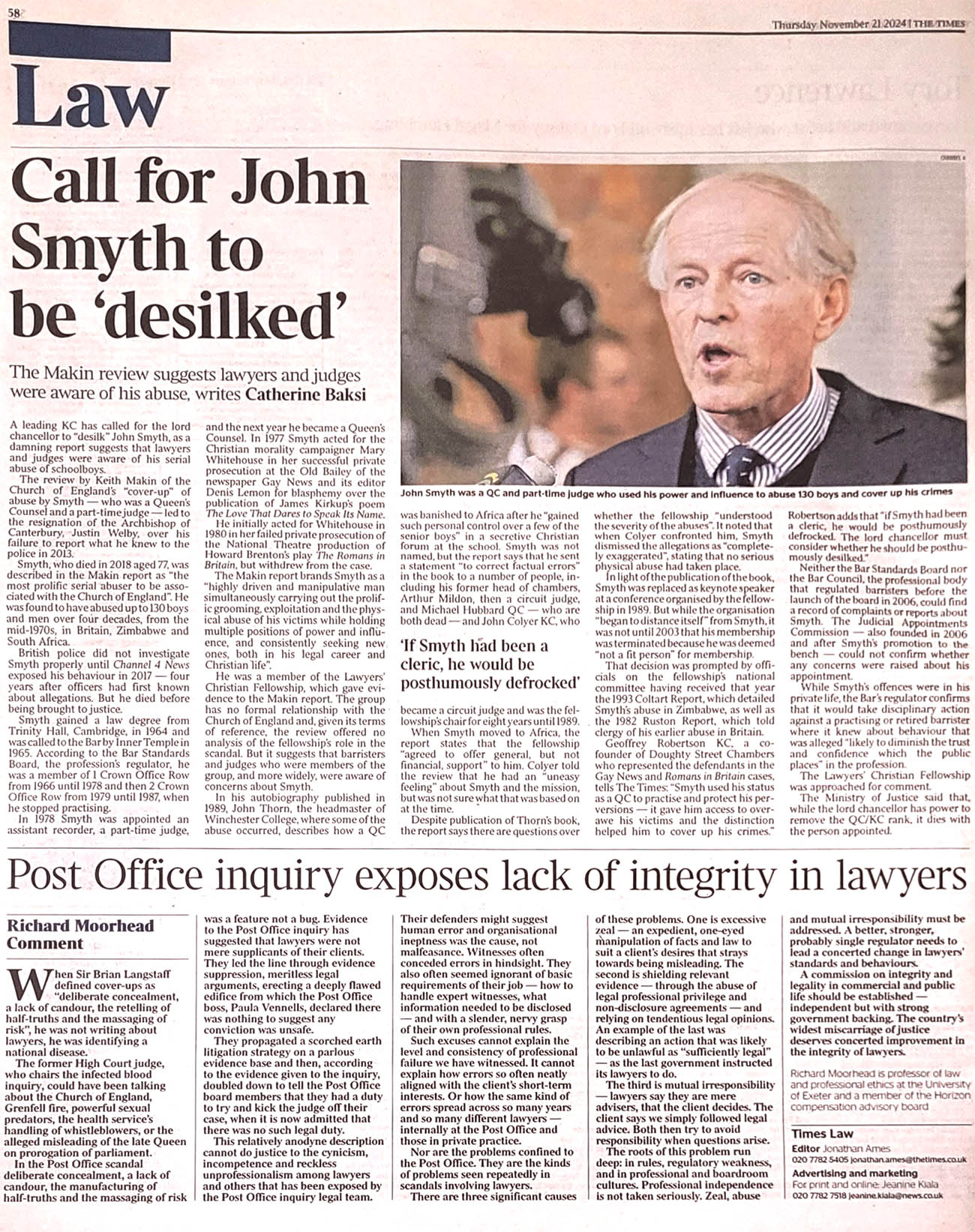
Professor Richard Moorhead is spot on. Read the Law Gazette article below. Sleight of hand - or to be blunt, dirty tricks - used by litigation barristers and their instructing solicitors can often win the day at Court. These same barristers later become judges - and members of the judiciary are equally adept at covering up the truth when it suits them.
Judges urged to call out litigators working to hide the truth
Judges should lead efforts to change the culture of litigation and curb the ‘lawyerly zeal’ helping to hold back the truth, a top academic has said.
Giving the annual Hamlyn lecture in London yesterday, Professor Richard Moorhead suggested the Post Office scandal had highlighted the role that the courts can have in preventing misconduct by lawyers.
Moorhead, one of the leading authorities on the Post Office scandal, said lawyers pursued a ‘flat earth’ approach by varnishing, skirting and suppressing adverse evidence to create a self-justificatory truth.
‘What we see in the Post Office Scandal is information being processed on the basis of what is "arguable" or helpful rather than what is true, fair, and balanced,’ he said.
‘A culture of "can we get away with it" is driven by wishful thinking and legitimised by lawyerly zeal. What is maximised is a self-serving version of truth.’
One of the key factors in exposing the wrongful conviction of hundreds of sub-postmasters and subsequent efforts to cover this up was the approach of the trial judge in the Bates litigation, Sir Peter Fraser, and his excoriating ruling.
The Post Office legal team had even tried – unsuccessfully – to have Fraser recused, and Moorhead suggested that efforts to pressurise the judge showed they thought this was a ‘tactic worth trying’. He added that the judge had taken a reputational risk in taking such a strong stand, and it was easy to imagine another judge taking a less robust line and not uncovering the scandal in full.
‘Big beasts, firms in particular, appear to have more institutional power than courts and regulators over the culture of litigation,’ said Moorhead.
‘They can fight the long game, through appeals, and in any subsequent regulatory investigation, as repeat players. Judges are exceptional of intellect and independence, but they also work alone. Better resourcing and support for judges, is both unlikely and essential to the management of cases with difficult parties and lawyers.
‘And however it is done there needs to be a concerted, ongoing, visible effort for regulators and judges to work together on cultural problems in litigation.’
Moorhead argued for a single, unified code of conduct across all regulated lawyers and called for an independent commission on ethics, similar to the Clementi Review of legal services which led to the Legal Services Act 2007.
The commission’s central agenda should be how to improve honesty, integrity and effectiveness in the use of law and would need to be independent of, but also working with, government, the professions, the courts and regulators.
Moorhead also suggested there may be a case for firmer regulation of litigation as a reserved matter and disclosure in particular.
‘It is not enough to think I have an argument for saying that is not misleading; my obligation, the particular, scrupulous, active obligation, is on me not to mislead anyone or to be complicit in misleading anyone in the context I am operating in,’ he added.
Law Society Gazette
By John Hyde
14 November 2024
Original article HERE
